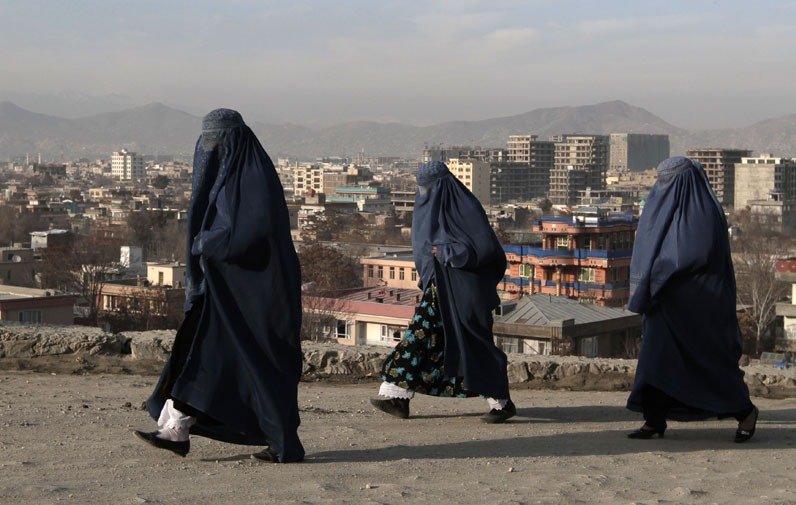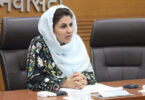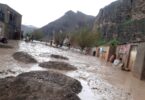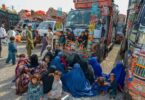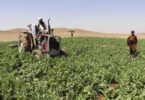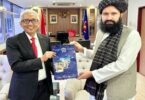KABUL (Khaama Press): Since the Taliban regime regained power in August 2021, it has issued over 50 decrees to limit women’s public and private roles. By 2023, these restrictions have become more severe, significantly affecting women’s lives.
The Taliban’s restrictive actions against women can be categorized into four areas: deprivation of women from participating in political arenas, limitations on women’s participation in social activities, prohibition of continuing education, and restriction of women from participating in economic activities.
Although the Taliban had previously announced that within the framework of Islamic Sharia, women and girls would be given the right to work and education, no decision has been made by the Taliban administration for more than two years to show respect for women’s rights.
The Taliban subjected private university students in Afghanistan to gender segregation less than a month after taking control of Afghanistan. On September 12, 2021, the Taliban Ministry of Higher Education announced a similar action for public universities. This process continued until the complete removal of girls from the realm of university education and continues to this day.
According to experts, the higher education system in Afghanistan under the rule of the Taliban has faced a definitive collapse, such that 30% of university professors have left Afghanistan. The education sector in Afghanistan has also been on the verge of collapse since the arrival of the Taliban administration. These two cases and numerous other instances have contributed to concerns about the promotion of a mindset based on gender apartheid.
Ms. Najiba Ayubi, a women’s rights activist, said, “No society can witness progress and development without the presence of educated and knowledgeable women. What is imposed on Afghan women today is a great injustice that can negatively affect several generations and will forever weigh heavily on the shoulders of the current rulers.”
Women and girls have also faced the same fate in media activities. Khaama Press’s findings show that the restrictions imposed against freedom of expression and women’s participation in the media have contaminated this field with discrimination, leading women journalists to prefer being unemployed or leaving the country.
The prohibition of broadcasting women’s voices in some provinces, the refusal of the Taliban’s officials to interview women journalists, the imposition of mandatory clothing, and the compulsory covering of women presenters’ faces are among the most prominent cases that have severely limited the activity of women journalists in the media.
Findings by journalist-supporting institutions, including organizations that support free media in Afghanistan, indicate that the presence of women in Afghan media has decreased by more than 90% after the Taliban administration took over.
On December 24, 2022, the Taliban banned all female employees in national and international non-governmental organizations. The Ministry of Economy of the Taliban asked these organizations to suspend female employees until further notice.
Now, the question is whether the restrictions against women will decrease in 2023.
The Georgetown Institute for Women, Peace, and Security in 2023 announced that Afghanistan has been identified as the worst country for women among 177 countries in the global index of women’s status that year.
Khaama Press’s findings show that the restrictions imposed in 2021 and 2022 have been strictly enforced by the Taliban’s executive forces in 2023. The implementation of more than 50 restrictive orders this year has led women to describe 2023 as “an experience of inhumane limitations.”
These findings, based on previous Khaama Press reports, also show that in addition to dozens of cases of deprivation and prohibition against women, further restrictions have been imposed.
The prohibition of women’s activities in beauty salons is among the restrictions imposed in the summer of 2023. An order that destroyed the employment of about 60,000 female beauticians.
Rana Saeedi, one of the beauticians, told Khaama Press, “After the prohibition of education, I tried to work in a beauty salon to improve my condition, but after the prohibition of beauty salon activities, I was also banned from doing this work and now I am in a bad economic situation.”
The year 2023 was also marked by the suppression of street protests, and several women’s rights activists were arrested during the year. Julia Parsi, Parisa Azadeh, Neda Parwani, Bahara Karimi, and Manizha Seddiqi are among the protesters who were detained by the Taliban for more than three months and were released in early December.
From the beginning to the end of 2023, the United Nations Security Council held at least three sessions on Afghan women. However, the holding of these sessions did not bring about much change in the restrictions imposed on women.
Najiba Ayubi, a women’s rights activist, told Khaama Press, “Regrettably, Afghan women are deprived of all their individual and collective rights, from August 15, 2021, to today, the situation for women is getting worse every day, and the decrees restricting them are increasing. Unemployment and poverty are rampant; women and girls who dreamed of higher education and progress are now imprisoned in their homes.”
According to her, “The deprivation of girls from education can have short-term and long-term dire consequences and add to the many current problems.”
Meanwhile, in the midst of all these restrictions, the rates of suicide, mental health issues, and forced and underage marriages among women and girls in Afghanistan have unprecedentedly increased.
Soraya Paikan, a women’s rights activist, told Khaama Press, “For the development of a society, modern and progressive knowledge is necessary. We should not waste time and opportunity to achieve this goal.”
She says, “Women, who are a very important part of society, are prohibited by the governing authorities from acquiring knowledge and education. The damage of this action by the Taliban is severely hindering the community from advancements in science and knowledge.”
These statements are made while the Taliban regime always emphasizes that its treatment of women is in accordance with Islamic Sharia.

